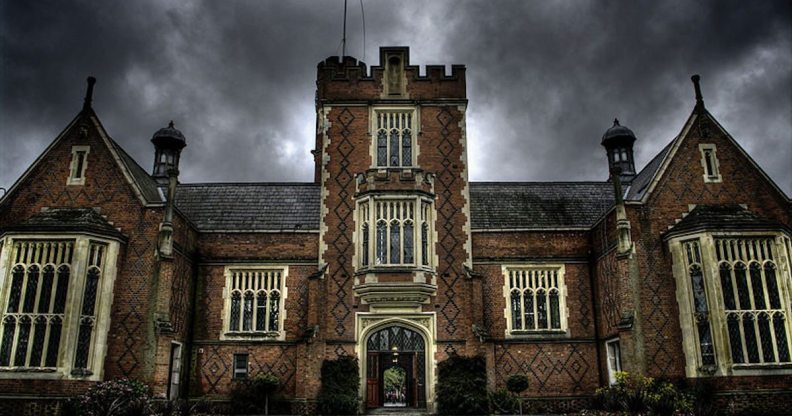Boys in skirts: Why boarding school culture must change

The British class system has always been one of our most enduring sources of comedy. Most notably, the depravity of the aristocracy, and the superficiality of the middle-classes.
For hundreds of years we’ve poked fun at it. The world may change, but the British appetite for labels, stereotypes and definitions never does.
It’s little surprise, then, that the notion of a boy in a skirt can cause such outrage even in 2018.
Uppingham School in Rutland, a co-educational institution which commands fees of £36,000-a-year, recently announced that pupils will be allowed to wear the uniform of whichever gender they feel most comfortable with.
While it’s easy to skim over such a story as another quirky tale in a line of schools now pushing for gender-neutral uniforms and stronger acceptance, in the hidden world of boarding school culture, this is a seismic statement.
Life at boarding school at the turn of the millennium was a far cry from what Hogwarts would have you believe. Boys were expected to be boys. Homophobia ran rampant, which many of the staff did little or nothing to discourage.
Coming out would have been unthinkable — those that had were quietly ushered out of the school “for their own safety”.
Related: Boarding school faces backlash for allowing transgender boys to sleep in boys dorms

(Alex Bailey)
“Games” staff, many of whom were dinosauric throwbacks to the 50’s, devised gruelling physical challenges designed to hurl you through the mud of the rugby pitch and emerge, transformed, into the delightful repression of manhood.
Everything was touched by a toxic hyper-masculinity of the most potent kind. While boys were actively encouraged to be aggressive with one another, some of the most vile and homophobic insults I heard came from girls.
They felt robotically designed by the system to look down with disdain on any boy who exhibited even the slightest glimpse of weakness or, heaven forbid, effeminacy.
Ironically, within the animalistic confines of the boarding house, boys fingering one another was considered a manly display of power.
While my time at boarding school was also filled with positives — I have treasured memories of my literature, drama, and art teachers, the school theatre productions were spectacular — the social effects were felt long after I’d departed.
I was left with an intensely homophobic slant to my language that it took several years, and people much wiser than I was, to throw off.
Having kept any and all sexual inclination in lock-down through my adolescent and young adult years, I experienced a deep self-loathing and doubt.
Moving to the more open-minded world of London after university, connecting with like-minded individuals and, finally, accepting who I was went some way to healing the scars.
Related: Boarding schools given new guidance on accepting transgender students

But I was left with an intense fear and anxiety which I doubt I will ever be able to discard entirely. My first sexual encounters as an adult involved a lot of trembling and some very understanding initial partners.
Because how do you get over 10 years of being told you’re wrong? A freak? That “faggots” just deserve to die?
It takes a long time, I’ll say that much. And it gave me issues relating to both work and personal life that, finally, drove me into the therapist’s chair.
I’ve heard that the school I grew up in is very different now, and I hope that’s true. But independent schools tend to operate under their own rules and are often exemptions to the education systems which state-run institutions must adhere to.
Which is precisely why daring moves like those by Uppingham School and its headmaster, Richard Maloney, need to be applauded.
“I would hope that any pupil could come to me and say, ‘This is who we are, this is how we wish to express ourselves. We want to wear these clothes’, and we would probably allow that,” reads a quote from Maloney.
Related: Exclusive: Gay couple denied shot at becoming prom kings say their school has ‘failed’ them
A far cry from the experiences I remember.
Our ingrained class-system, which conservative institutions like boarding schools rely heavily on in order to remain profitable, does not lend itself easily to change.
And behind those closed doors, certainly little over a decade ago, was a system laced with conformity, fear and bullying. Which is why this move needs to be celebrated and applauded.
Boys in skirts at boarding school is far more than a quaint news story, it’s a rallying cry for a new generation of teens who shouldn’t have to go through their school years hiding who they are, nor feeling ashamed of it.
And I dearly hope that we see other boarding schools following suit.
To those within the system, I’m probably just another millennial snowflake who needs to “man up” (a phrase I remember being bellowed loud and long at school).
But to help put an end to the self-harm and the depression; the anxiety and the suicides which still run rampant among LGBT+ teens, allowing boys to wear skirts seems like a relatively small price.
Especially when you’re paying £36,000 for the privilege.
Mark Bonington is a freelance journalist who contributes to PinkNews, The Stage and the London Evening Standard. All of the above experiences are his own.

